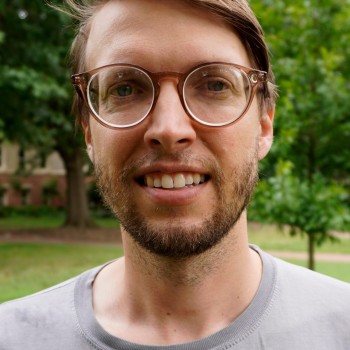PhD Program
The Carolina Planning PhD program trains students in urban and regional social theory and research methods. Our program is highly selective and individualized; each year between three and six students begin the program with 20-25 PhD students in residence at any given time.
Our program is situated in one of the largest, most diverse planning departments in the country with students from all over the United States and the world. Our PhD students are distinguished by the strong skills they develop during rigorous training in planning theory, research design, and mixed-methods research techniques. Most of our PhD students have previous graduate training (e.g. a Master’s degree) and work or research experience in planning or a related field.
As a result, our graduates sit in leadership positions throughout the United States and the world, contributing to the understanding of urban and regional issues, formulating innovative public policy, and managing research programs in domestic and international contexts.
What do our graduates do? About 50 percent of the program’s graduates become faculty members in research universities. Others pursue careers in international agencies, think-tanks, government, or consulting. Nearly 20 percent work outside of the United States or are engaged in multinational projects. Our PhD graduates include department chairs, deans, officers of national academic and professional organizations, and many well-published scholars.
Dr. Todd BenDor is the Director of the PhD program and Admissions.
Meet Our Students
Course of Study
Each student develops an individualized program statement to reflect his or her specific area of interest and career aspirations. The UNC Planning PhD program has three primary phases:
- First, students and their program committees jointly determine the area of specialization and appropriate course work during the first semester in the program. Written comprehensive exams are taken at the end of a student’s coursework program, testing knowledge of planning theory, research methods and a specific area of specialization.
- Students must then conceptualize, fully design, and propose a significant independent research project (PhD dissertation) that contributes to knowledge in the field of city and regional planning.
- Finally, students must complete and defend their dissertations.
Adequately prepared students with master’s degrees in planning or related fields generally need four semesters of formal course work. Students without master’s degrees generally take another semester or two. During this time, students take courses in advanced planning theory, policy-oriented research design, and data analysis techniques.
Our program draws on the intellectual resources of the University of North Carolina at Chapel Hill, a leader in the social sciences. Carolina Planning students really get four universities in one: student may take courses in any department at Duke University, North Carolina State University, and North Carolina Central University. Students often take courses in Departments of Anthropology, Economics, Political Science, Public Health, Sociology, Environmental Sciences and Engineering, and Public Policy. Students also take three PhD seminars that train students in research, grant writing, and career development. The following provides a short summary of the required coursework.
2 Research Design Courses
1 Qualitative Methods
2 Quantitative Methods
1 Advanced Planning Theory
For more details about program requirements, please read the PhD Program Guidelines.
Milestones

Year 2
- Complete paper on area of dissertation research
- Form comprehensive exam committee
- Year 2 Coursework

Year 3
- Take oral comprehensive exams
- Take written comprehensive exams
- Form dissertation committee and prepare dissertation proposal
WHERE DO DCRP PHDS GO?
Current Affiliations of DCRP PhD Graduates Since 1998




